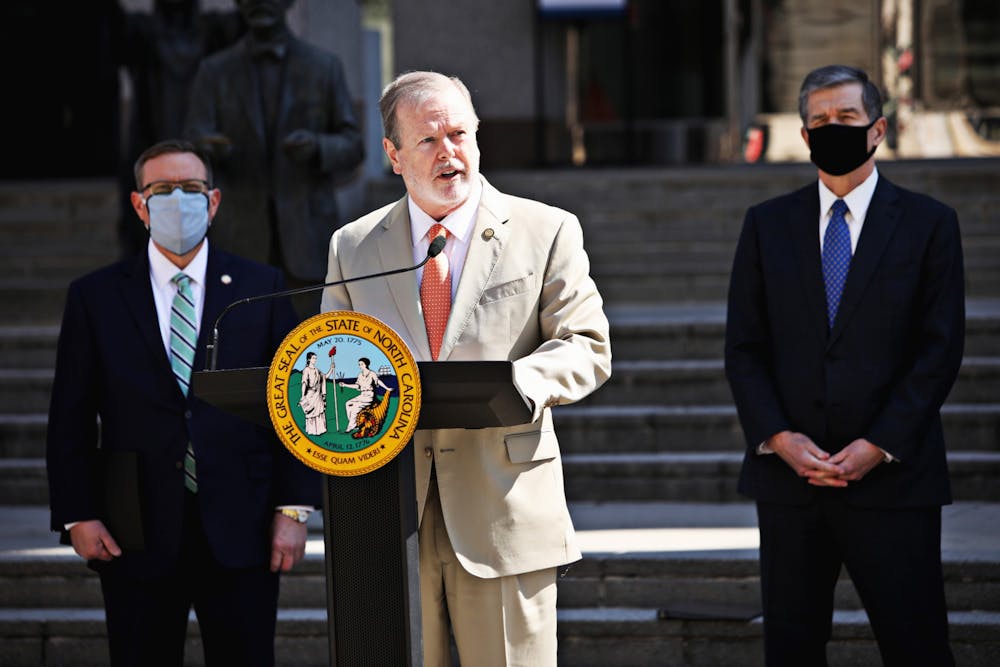Republican members of the N.C. General Assembly are currently working on a compromise budget proposal for the 2023-24 fiscal year — but it may not be completed until early July. The new fiscal year begins on July 1.
N.C. Sen. Mike Woodard (D-Durham) said the N.C. House budget’s larger raises for state employees and the N.C. Senate budget’s acceleration of proposed tax cuts are the most notable differences between the two budget proposals. He said it is challenging to include the priorities of all the legislators working on the compromise budget.
“It takes a lot of time and it requires a lot of conversation and some negotiation back and forth between all the members of the conference committee,” he said.
Woodard said there is a lot of pressure to pass a budget that implements the Medicaid expansion that was passed by the General Assembly in March.
The bill — which was signed by Gov. Roy Cooper — expands Medicaid eligibility to include the majority of adults who make less than 133 percent of the federal poverty level. But, the final implementation of this expansion, Woodward said, is contingent on the adoption of a budget.
He said funding for transportation modernization is one of his personal priorities for the budget, as well as the expansion of behavioral health services across the state.
Jake Cashion, the vice president of government affairs for N.C. Chamber, said the business advocacy group is hopeful that state leadership will create a budget that supports the state’s economy and job creation.
“North Carolina is the No. 1 state in the country for business — that wasn’t by accident,” he said.
He said the N.C. Chamber hopes the compromise budget will include an elimination of North Carolina’s regressive franchise tax and modernization of state transportation funding.




